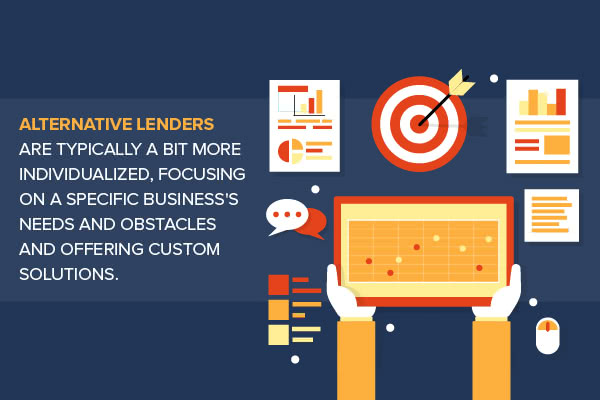When you began your business, it was small; most are for the first few years. But now that you’ve gained customers and market share, you’re feeling it’s time to expand. This is a normal part of business life, yet a challenge for many small business owners. Small business expansion is crucial for seasonal business growth.
Expanding your business takes careful planning. Perhaps you need a new space to add more selections to your catalog or just to restock your inventory to cater to rising demand. No matter the case, any business expansion requires funding.
You have several options to secure financing when expanding your business, and the more you know about each funding method, the better.

The traditional option: Bank loans
A traditional route is through a bank; you’ll present general financial information about your business, your plans for the loan and the reason you think the loan will help you grow. In return, the bank will decide whether you’re a good candidate. If the bank decides that you are, it’ll present you with a loan amount and an interest rate.
There are a number of challenges associated with obtaining a business loan, however. Banks typically have stringent requirements as far as business health, credit score and future plans, NerdWallet explained. Many small business owners are turned away.
Banks usually don’t want to lend in small amounts. Larger loans mean bigger profit for the bank, so for a large institution, it’s better to pass over the smaller loan requests in favor of a bigger deal down the road.
However, most small business owners aren’t looking for a large sum of money; rather, they just need some extra funding in the moment.
The social option: Crowdfunding campaigns
Crowdfunding is another option. You’ll create a campaign on a platform like Kickstarter or Indiegogo. The campaign will explain who you are, what your business is and what you want to do with the money you raise. Then, individuals who want to help your business will contribute to the campaign.
Some businesses like to use crowdfunding platforms because they provide a good barometer for how their audience will react to a new product line or idea.
While crowdfunding campaigns are a modern approach and can be fun to launch and grow, they can also be risky. Some platforms, such as Kickstarter, only disburse funds if the goal is met, Entrepreneur pointed out. If the target fundraising goal isn’t reached within the set time frame, the campaign creator doesn’t get any of the funds. Instead, the money is returned to those who contributed.
Additionally, not every financial need is a good match for a crowdfunding campaign. These should be new, relevant and unique ideas. If you’re expanding your product line by launching a new offering, this may work. If you’re just trying to grow what you already have, it’s probably not ideal for crowdfunding.
The other option: Alternative lenders
Finally, you could turn to an alternative lender. The goal is quite similar to that of obtaining a bank loan – you’ll present financial information and the lender will either make you an offer or decline your proposal – but the experience is a little bit different. Alternative lenders are typically a bit more individualized, focusing on a specific business’s needs and obstacles and offering custom solutions.
Unlike many bank loans, an alternative loan typically doesn’t require any collateral to be offered or a down payment to be made. Plus, alternative lenders typically have higher approval rates than bank loans.
Loans from alternative lenders are usually approved quickly, allowing for funds to be disbursed fast.
To learn about your eligibility for a small business loan, reach out to National Funding. We’ll be able to help identify your needs and work with you to find a helpful solution.










